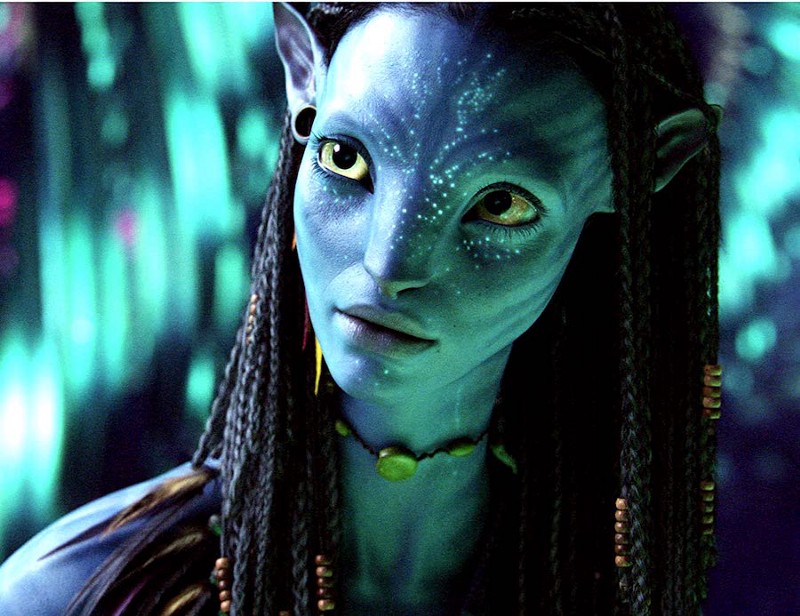This website uses cookies so that we can provide you with the best user experience possible. Cookie information is stored in your browser and performs functions such as recognising you when you return to our website and helping our team to understand which sections of the website you find most interesting and useful.
How to Overcome The Fear of Change In The New Era

Here we are in this difficult place, between coping with the effects of isolation and navigating our way in an unsafe world. This in-between zone is not only a harsh new reality but also a dramatic metaphor for the changes that occur throughout our individual lives. Whether catalyzed by an inner-yearning or an event beyond our control, how well we cope with change depends on the depth of understanding of our personal and collective psychology.
The Call To Change
“Taking a new step, uttering a new word, is what people fear most.”
― Fyodor Dostoevsky
The call to change may come months, years, or decades before the actual change. A relationship sours years before the breakup. A skill becomes obsolete long before officially pronounced defunct. A cherished dream hides away for an eternity before we choose to pursue it.
Overcoming the fear of change is in large part about reading omens by being in touch with our senses and intelligence. Environmental disasters and pandemics were predicted decades ago, yet we were all stunned when more than a billion animals perished in the Australian fires, and the current “sars-like virus” turned living nightmare.
We delay change because we’re human.
The extreme poles fear and desire cause most of our stresses. The least stressful place for us to dwell in the short-term is somewhere between, neither provoking fears nor striving to fulfill desires. We rely on this stasis to keep balance and tend towards physical and psychological inertia. We spend our days firming up the external structure of our lives as well as a comfortable repertoire of thoughts, feelings, and behaviors. All this adds up to an identity meant to protect us from the winds of change.
Stepping into the unknown brings a degree of anxiety for most people. When a new opportunity presents itself, so do the spook’s doubt and worry. “You don’t have the intelligence, skill, and personality to seize this change,” they say. The rational mind justifies the hauntings, “Things aren’t so bad after all. And as they say, if it ain’t broke, don’t fix it.”
Change requires vision, energy, strategy, and time not easily resourced. And so we resist for as long as we possibly can – until our world turns upside-down. Then the cracks in our long-held structure glare like the midday sun. And we remember a dream or gut feeling that foretold of the coming change.
We remember the call.
How Myths Teach About Change
“One way or another, a guide must come to say, ‘Look, you’re in Sleep Land. Wake. Come on a trip. There’s a whole aspect of your consciousness, you’re being, that’s not being been touched so you’re at home here. Well there’s not enough of you there’. And so it starts.”
― Joseph Campbell
One effective way to overcome the fear of change is to read myths. Myths reawaken our dormant capacities and spirit of adventure. “The value of myth is that it takes all the things you know and restores to them the rich significance which has been hidden by the veil of familiarity,” said C.S Lewis.
Myths inspire us to plan our escape from the “despairing boredom of the soul,” Friedrich Nietzsche warned of; to seek meaning over monotony. Midstory, a spark of self-insight ignites the soul. We find ourselves musing, “Maybe I do have the wherewithal to overcome this situation. Maybe I can answer my deeper calling.” In myths, as in real life, the spark, the exciting maybe is the clue to the “bliss” Joseph Campbell recommended we follow if we’re to discover the abundant blessings of our lives.
The archetypes we are.
Archetypes, the characters of mythic stories, depict the traits, drives, and life patterns shared by all humans, what Carl Jung called the collective unconscious. We inhabit many archetypes at different points in our lives (and throughout the day), e.g., The Innocent, The Lover, The Caregiver, The Rebel.
The Hero archetype is the most inspiring because it mirrors the duality of human nature. We are ordinary and extraordinary, complacent, and adventurous, bored with the known and fearful of the unknown. The hero starts as an ordinary person, living a comfortable, habit-bound life, winning in one sense yet under-challenged. She hears the call to change, but her known, mundane world is too full of demands for her to respond to the call. Behind busy-ness hides the dread of letting in the chaos of change.
What we resist persists. A sudden event rocks her world, casting her into the wilderness. Although her inner needs brought the event to pass, she’s not consciously ready for change. She clambers towards home, with the sole aim of getting there quickly, unscathed. But the story complicates, darkness befalls and enemies, real and imagined, lurk.
The Battle Within Change
“Life is a battleground. It always has been, and always will be; and if it were not so, existence would come to an end.”
– Carl Jung
The heroic journey is one of trials and tests that build the skills and capacities the hero most needs to become whole.
The hero’s first reflex is to load her trusty weapons, the habitual behaviors and strategies that served her well in the past, and fire her way through enemy lines. But one by one, her weapons fail. She runs out of ammo.
Confused and exhausted, now all the hero wants is a quick, painless way to calm the chaos, cut losses, and move on. Her wish seems granted when a Trickster appears in Mentor’s clothing. The Trickster lights a signposted path and sings a lullaby to soothe her ailing soul.
The fast, marked path.
These are the familiar tales I hear from people barely out the gate of their journey into change. They try to navigate the new terrain with outdated maps, tools, and strategies until they reach exhaustion.
Impatience and frustration are the pitfalls here. In the desire for a clearly defined path to their new life, they fall under the spell of pearly-mouthed marketers (Tricksters) that trade the promise of fast-acting solutions for gold. These are dubious peddlers we find on every internet corner selling the rusty concepts of visualizations, affirmations, and simplistic positive thinking in new pricey packages.
Useful at certain junctures of recovery, visualizations, and affirmations are not a panacea. For a start, an exhausted person can barely muster the energy needed to create an inspiring image, let alone empower it. As for obliterating negative feelings with positivity (denying the battle), this is an ineffectual approach to overcoming the fear of change. “There is no coming to consciousness without pain,” said Carl Jung.
All feelings, not only the ones we like, are forms of energy and awareness. Cut off one feeling, and the whole system suffers.
On the hero’s journey (the inner path to wholeness), speed is always, always, a trap of some sort. The wooings of an unscrupulous teacher, the too-good-to-be-true deal, the fantasy of utopia, infantilize rather than mature the psyche.
The Disillusionment Stage Of Change
“Where we stumble, there lies our treasure.”
– Joseph Campbell
One reason we try to rush to create a new life is that we barely recognize ourselves when stranded in the unknown. Our identity, how we know and relate to ourselves and others, seems in question. No longer the successful executive, the happy spouse, or the picture of resilient health, we’re have also not yet developed the new self that awaits.
In this liminal space, confusions abound. The ground beneath our feet feels solid one moment, then like quicksand the next. “Ah,” we conclude, “this is the way,” but only a few steps forward prove us wrong. We look in the mirror, and all we see is mist.
Disillusionment is an integral part of every hero’s journey. When we find ourselves in the mist, it’s essential to pause before rushing ahead to construct a new identity.
The mist is a place, not no place.
Revered by the spiritual mind, feared by the consumer mind, the mist is a form of emptiness that precedes replenishment and reconstruction. It is a stage that need not progress to depression if viewed as a time for repose and inner-reflection.
Ruins of the past live in the mist. Things still cherished though irretrievable, and outworn ways and misguided ideals. Obscured by the daylight of busy-ness, the ruins reveal themselves in the moonlight, hypnagogia (half-sleep), and dream, and what Freud called the preconscious.
The ruins of the past appear for good reasons; to be contemplated, understood, praised, and grieved. They do not come to be brutalized with positivity. We must tip our consciousness to the images, and bear witness to the complexity of feelings that coincide. Let pain walk with joy, sorrow with love, doubt with faith.
How the past completes.
By allowing the past to touch us profoundly our emotional landscape expands and thereby matures. This is the key to overcoming the fear of change. The old life and the old identity can complete their karma.
We can then speak honestly, “That was real back then, but now it’s only a paper moon.” Or, “I still cherish the relationship even though it’s complete”. Or “I see how my inner needs caused the change.” The honest expression of what we feel and where we stand in our journey moves mountains. Truth is a prayer that resounds through the universe, awakening the cosmic and earthly energies that aid of every sincere hero.
These energies manifest as allies, mentors, and synchronous happenings and realizations that guide us towards a heart-awakened existence, the treasure we’ve been seeking all long.
Conclusion – The Blessing Of Change
“Yesterday I was clever, so I wanted to change the world. Today I am wise, so I am changing myself.”
― Rumi
Carl Jung and Eastern philosophies tell us that humans have two karmas, individual karma and the karma of the collective. Individual karma is your unique life path.
Collectively, we are in the mist, reflecting upon and grieving the lost beauty and vitality of the planet, and learning from the misguided ideas that led us to this point. Recognizing how connected we are to one and other and the earth, our shared destiny, is the star blessing of this time.
I wish you tremendous support on your individual journey and the journey we share.
Article first published on JayneStevenson.com
Share
Latest Posts
Meditation
Yoga
Wisdom
Chakras
Get Wellbeing and Wisdom Updates
"*" indicates required fields

